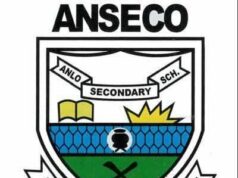The school is supposed to be the seedbed for young, untapped and unmolded potential, responsible for providing an enabling environment to nurture, mold and hone minds to their greatest capabilities. That is its core mandate and purpose.
A purpose that has, by large, been left to the dogs in a system where those responsible pass the onus immediately it falls to them. To put simply, the public school system is falling to ruins and no one, as appears to be the apparent case, can be blamed.
And for a government that lays claim to prioritizing education, its prospects of achieving its goal, in the president’s words, “of providing every Ghanaian child with access to senior high school, because … knowledge and talent are not for the rich and privileged alone” may very well be far from ever becoming anything other than a political rhetoric.
When the playing grounds are leveraged in favor of those who can afford to pay, knowledge and talent are yanked further out of the reach of the ones who need it most.
That is the unfortunate situation at the Zenu Kpone Katamanso District Assembly Junior High School and for its students – a daily reality.

I arrived to meet the large school compound deserted and most of its classes closed for the vacations. But upon drawing near to the school building I found a few students chatting away under a tree.
They were students of the Form three class attending a vacation class in preparation for the upcoming examination. I would later learn that preparation was nothing but a last minute attempt to force in the bulk of uncovered topics down the throats of the students with the purpose of completing the syllabus.
But I was yet to learn of the worst of the woes these students had to put up with. Interacting with the very lively class and their teacher, I gained a deeper insight into the burdens that made the basic right to gaining an education for these children, a curse rather than a blessing.
One concern that stood out to me the first time I arrived at the school was the sheer ease with which one could enter the school, mainly attributable to the fact that the large compound didn’t have a single inch of walling. To put simply, security, in all its varying shapes and forms, was blatantly non-existent.

According to the students, it was their most pressing need and the lack of it thereof had put their lives in jeopardy on countless occasions. I was horrified with stories of how thugs had swaggered into the school, armed with knives and taken whatsoever they pleased severely injuring some students in the process.
Drug addicts, pushers and junkies were also known to occasionally pay visits to the school using a building in the school as their rendezvous point. They were frequently spotted having their drug-induced orgies at night when the school had ended. Sometimes, though, things weren’t as smooth and the uninvited guests would barge in at school time and the results were often bloody. For these students here however, violent outbreaks were a thing of the norm; both from the outside and from within.

To aid in “self-protection” some students came to school armed with knives – it wasn’t uncommon here to have an argument end in physical altercation and fatal injuries. Blood was no new sight and to survive here you had to be tough. Witnessing and suffering such physical and emotional abuses everyday at school, and for some of these students supplemented by worse ill-treatments at home, I understood the fierceness I found on the faces of the students. They had gone through the hail and fire, and had come out baked solid. Insensitive. Immovable. Emotionally impenetrable.
That thought hit me as words fit to describe a prison. I was left wondering where their future lay when these students were spending their formative ages in an environment where witnessing such raw violence was commonplace. Abraham Maslow, the renowned American Psychologist, had coined the answer perfectly; “If the only tool you have is a hammer, you tend to see every problem as a nail.” Here, we were breeding robbers more than students. We were, through our neglect, arming these students with knives rather than knowledge. We were training a generation that would emerge into the world discovering that they had no knowledge to impart, no talent to exhibit, no skill to market – they had nothing to offer we had given them nothing to hold onto, maybe except violence.
And the scars left behind after every brawl went beyond the physical and affected more than just the combatants. Being bred in this atmosphere of violence and raw brutality the students had become impervious to authority, a male teacher lamented, they wrote on walls, fought amongst each other and sometimes went as far as threatening and abusing teachers. He went ahead and narrated to me an instance where a boy he had reported for forcibly fondling female students had hit him and run away.


According to him, the only way to ensure discipline was to be seen as an unrelenting punisher. But that approach, as effective as it may seem, affected the mental, emotional and psychological state of the student and ultimately, the learning process.
“Knowledge that is acquired under compulsion obtains no hold on the mind,” were the profound words of Plato on education. Words, which obviously have no bearing here.
Yet as unheeded as they are, the truth they speak cannot be ignored. Employing the cane as the medium for teaching antagonizes the teacher and ultimately the information that he presents. And even as I spoke with the teacher who had agreed to show me around, another sauntered by with a thick-looking cane wedged in his armpit. He spared us a cursory glance and marched off to his next class with no time to spare.
Nonetheless and as surprising it may sound, I found another problem here more disturbing than the daily display of brutal violence – the lack of teaching and learning resources and the training required to use them. Desks that were obviously meant for one were shared by two, textbooks were the rarest commodities here despite being one of the most necessary and the teachers had to make do without teaching guides. And a library was the hope for the distant future.
 According to the teacher, the workshops were painfully inadequate and even more disturbingly, had been focused on only English, Math, and Science. To wit, a student whose talents lay outside the borders of the ‘holy trinity’ would have to find their own path to enlightenment.
According to the teacher, the workshops were painfully inadequate and even more disturbingly, had been focused on only English, Math, and Science. To wit, a student whose talents lay outside the borders of the ‘holy trinity’ would have to find their own path to enlightenment.
Speaking to the I.C.T teacher, I discovered another alarming fact (a trend that was becoming unnervingly frequent); during ICT lessons a class of at least sixty students would have to put up with using two laptops owned by the teacher. And when I asked why the situation was so, the simple reply was that the Headmaster said that “the school is new and it would therefore require time for these things to flow in.”

In essence there were no tools here with which to equip the students with the skills and knowledge they required. Their sole source of information was the teacher. And to make it worse, basic facilities for sanitation was not available to these students. They did not lack the toilet facilities but were simply not allowed to use them since they were locked up and forbidden from use.
So I asked these students what they did in their free time and their answer was not so surprising – “we just talk” they echoed in unison, beaming with smiles. That was as scary as it was beautiful.
These students were perhaps more than a few years away from realizing the crimes that had been committed against them. I cringed at of the thought of them remaining so for the rest of their lives ending up as traders begging on the government on national television to descend from its high seat to save them from poverty – the same government system that had put them there in the first place.
Chatting with the students, I found out that the French lessons did not begin until Form One, at a time when the students had barely two years from what was undeniably the most important examination of their lives.
This resulted in the students having to cram in French, along with eight other subjects, into their minds to make up for all the topics that had been left untreated for one reason or another before their exam was due. This arduous was to be completed in the meagre span of two months and from the looks on the faces of these learners, they were failing at it. Horribly.

And it reminded me of Albert Einstein’s description of his schooling in Germany, “One had to cram all this stuff into one’s mind, whether one liked it or not. This coercion had such a deterring effect that, after I had passed the final examination, I found the consideration of any scientific problems distasteful to me for an entire year.” And those were the words of a man who would later come to be known as one of the greatest scientist to ever live.
One brave student actually suggested that the French teacher be fired. And as drastic as it may sound it may be the least that can be done to rectify the endless list of wrongs committed against these students.
Inquiring of their preparedness towards the Basic Education Certificate Exams [BECE], I found that the highest score in an external mock examination held in the school was aggregate eighteen. The student I spoke with however, declined to tell me her scores.
From where I stand, the future cannot be any bleaker for these students. All that lies before some of these young minds is a shadowy horizon, dark clouds loomed ahead, created by a system that graded them as lower class; starving them of the enabling environment they so desperately needed, and they were sailing right towards them with nothing to hold onto. Their futures laid to waste, destroyed even before it even began.

Source: Kojo Yorke // www.dailyviewgh.com / Ghana























